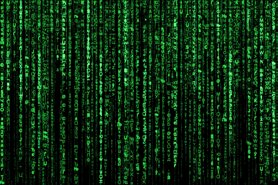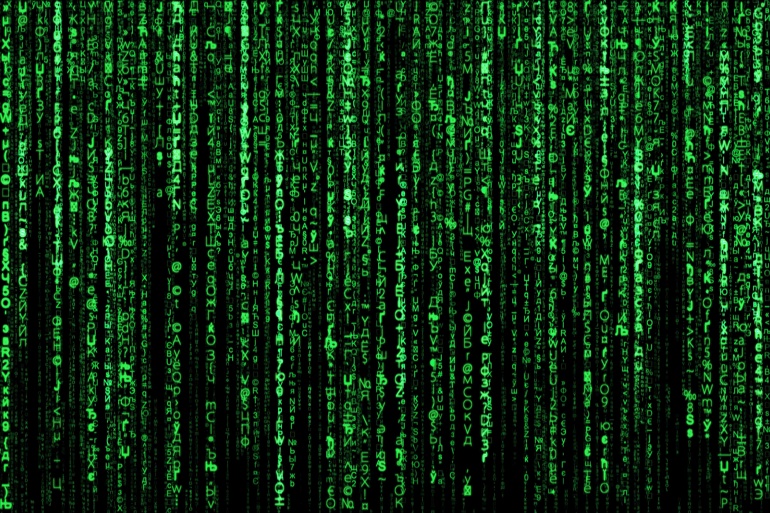What The Matrix got right about AI
AI's breakneck evolution
One of the most striking predictions in The Matrix was the rate of advancement of AI. Back in 1999, AI was still largely theoretical and futuristic. Now, machine learning, deep learning and generative AI (like ChatGPT) are playing a massive role in everyday life, especially relating to industry practices.
1956 | A small group of scientists birth the research of artificial intelligence at the Dartmouth Summer Research Project.
1997 | IBM’s Deep Blue computer defeats world chess champion Garry Kasparov.
2011 | IBM’s Watson DeepQA computer wins Jeopardy!
2018 | Google’s DeepMind creates AlphaFold, helping scientists to understand how individual proteins behave.
2022 | ChatGPT launches, making AI accessible to the entire Wi-Fi connected world.
AI has moved far beyond simple automation, now assisting in major operations like cyber security threat detection and cloud computing optimisations.
The power of simulated reality
In The Matrix, AI creates a fully immersive and accurate simulation so convincing that humans don’t realise they’re inside it. While we’re not trapped in a parallel world in 2025 (hopefully), VR and AR technology are starting to blur the lines between “real” and digital. We’re seeing AI chatbots become more and more realistic to a point where people are using them for actual, Spike Jonze-esque conversation. Deepfake tech is creating scarily accurate digital replicas, and the Metaverse platforms are pushing towards fully AI-driven virtual environments. Terrifying.
AI as a decision-maker
The film suggested a future where AI runs the world, making decisions without human input. While we’re not at a totally machine-controlled stage of society, AI is making critical decisions in areas like cyber security and healthcare. In the cyber security industry, AI is being used to detect and neutralise cyber threats much faster than humans and in the healthcare industry, AI is being used to diagnose diseases and suggest treatment plans.
It's not replacing human decision-making entirely, but it’s increasingly acting as a co-pilot.
What The Matrix missed about AI
Dependence on humans
Unlike the film, in which AI surpasses human intelligence and becomes fully autonomous, today’s AI still heavily relies on human input. AI models currently still require human oversight and fine-tuning to function at maximum capacity. Even the most advanced AI like ChatGPT can’t operate without human intervention. In fact, there’s a growing number of job vacancies for people to train ChatGPT and refine the prompts to suit the needs of businesses
AI Is not conscious
The AI in The Matrix is seemingly sentient, capable of feeling emotions, ambitious, and independent. AI as we know it in 2025, no matter how advanced, isn’t conscious. It processes data and recognises patterns, but it doesn’t ‘think’ in the way we understand it. They generate responses based on algorithms, not personal experiences or emotions.
AI’s potential for good
While The Matrix painted AI as a dark force, the reality is that AI’s proving to be an invaluable tool for progress across industries. In fields like cyber security, AI helps detect and prevent cyber threats before they cause harm. In cloud computing, it optimises resources for efficiency and cost-effectiveness. In business and tech training, AI-driven platforms provide personalised learning experiences. Rather than enslaving humanity, AI gives us the opportunity to work smarter and solve complex problems quicker than we could before.
The Wachowski sisters may have been ahead of their time in predicting AI’s rapid evolution, and extensive capabilities. Thankfully, the predictions about AI’s autonomy and consciousness were hugely exaggerated.
Rather than fearing AI, we can embrace its power to enhance skills, improve efficiency, and drive innovation. Whether you’re in cyber security, cloud computing or business management, understanding AI’s role in your industry will be key to staying ahead in the job market.
Looking to upskill in AI-driven fields? Explore Learning People’s courses in cyber security, cloud computing, code and more to future-proof your career.
Related Articles
 Data Science
Data ScienceWhat The Matrix got right about AI (and what it missed)
The Matrix predicted a world dominated by AI, but how accurate was it? In 2025, we explore what the film got right, where it exaggerated and how AI is reshaping industries today. From machine learning to cyber security, discover the reality of AI’s impact.
Read More Tech
TechHow Beyoncé uses data to sell out concerts before they even go on sale
Discover how Beyoncé harnesses data analytics to predict demand, optimise ticket sales and sell out concerts before they even go on sale. Learn how data skills can shape success in music, business and beyond.
Read More Tech
TechDating and data: a perfect match
Ever wondered how dating apps know your type? Discover how data science and algorithms shape your love life. From predictive matching to paywalls, explore the tech behind modern romance.
Read More Data Science
Data ScienceCareers in data science: Which path is right for you?
Discover your perfect career path in data science. From Data Analyst to Machine Learning Engineer, explore diverse roles in this booming industry. Learn how to align your skills and interests with the right path.
Read More

